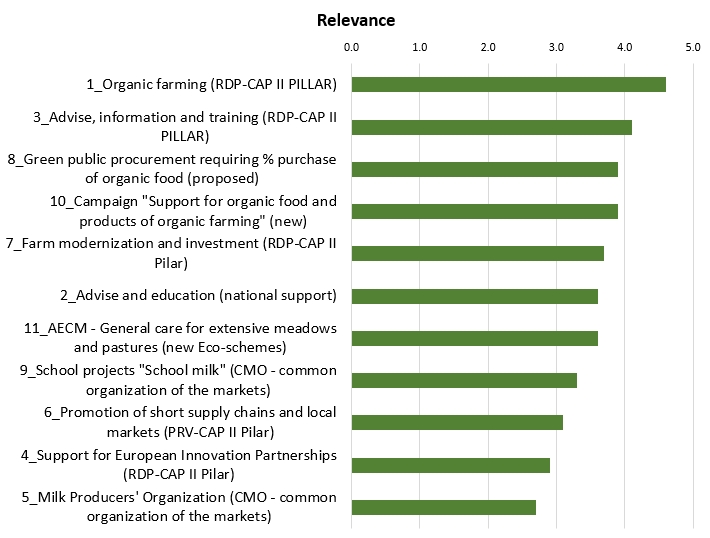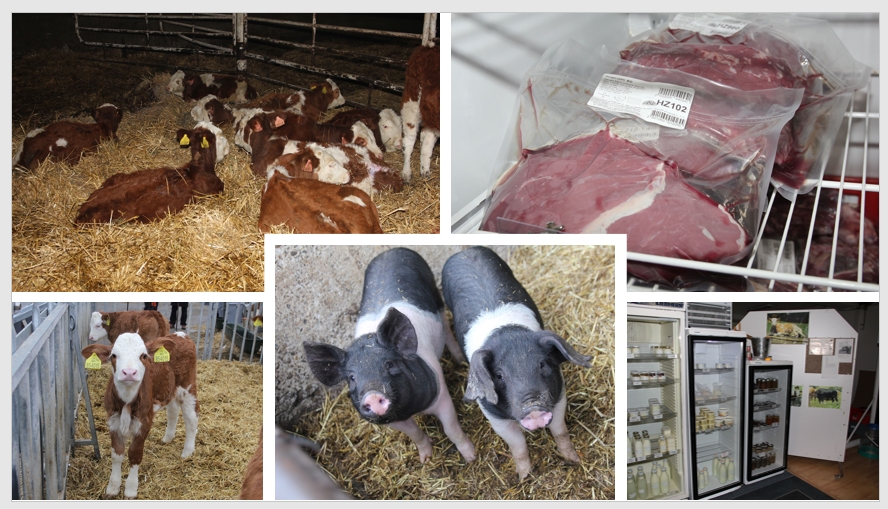During previous phases of the UNISECO project and the CS dilemma discussions relevant actors collected several barriers to sustainability (e.g. knowledge gaps and price premium/volume sold uncertainties) and actions which could be a basis for strategies to overcome them. Although the farms have set up a sales cooperative to secure a better bargaining position, their economic uncertainty remains.
The proposed transition strategies are aimed at bridging knowledge gaps (hiring a group learning advisor, sharing experiences), inviting other actors to cooperation (processors, traders) and keeping added value (for some farms the processing could be a solution). All these strategies rely on strengthening cooperation between farmers, as implementing them on their own can be difficult and costly for a single farm. All actors feel the benefits of cooperation, but meetings of actors have shown that further strengthening cooperation between members of the sales cooperative will require long-term efforts, and the same applies to expanding cooperation with other actors in the value chain.
In the participatory MCA, stakeholders were required to rank the shortlisted MPIs according to their relevance and performance with respect to the dilemma of the case study. The priority measure to solve the CS dilemma was clearly chosen Support for Organic Farming, followed by Support for Counselling (newly prepared in the Strategic Plan). Demand-boosting tools were also highly relevant: Green Public Procurement (GPP) and the Organic Food Campaign. On the contrary, the measures that respondents would be willing to regret are the Milk Producers' Organization and the EIP (see graph 1).

From the point of view of (current or future) performance Support for Organic Farming was evaluated as the best functioning tool. This was followed by the GPP and Support for Counselling (new in the Strategic Plan). Investments also scored higher. According to the respondents, AECM (basic care for extensive grassland) and EIP have the lowest performance for the investigated dilemma (see graph 2).

An interesting finding emerged - most of the key instruments mentioned above achieve the biggest differences between relevance and performance (apart from AECM, it was Support for Counselling, Organic Food Campaign and Support for Organic Farming) indicating the great potential for improving the conditions and the implementation of these MPIs. And overall, the performance of most of the evaluated MPIs was around 3, i.e. according to experts with great potential for improvement.
As part of the qualitative evaluation, the stakeholders selected innovative MPIs = most challenging for the strategies (already successfully implemented, revised or newly proposed) and determined the needs for their proper implementation. Opinions on the most innovative MPIs differed, but Support for Counselling and Green Public Procurement received the most votes. Counselling is considered innovative, as it will be newly implemented with different administration, different structure of applicants and with new regimes (e.g. farm plans for conversion to organic farming). GPP is a completely new tool in the Czech Republic, which (if adopted) will require the mandatory purchase of 5% of organic food from 2023. The main prerequisite for the successful use of these MPIs is the cooperation of farms; in the case of GPP, also other actors in the supply chain. In the Czech Republic, however, the capacity for cooperation is low. Although the history of cooperatives is one of the longest (since 1847), the willingness to cooperate was almost lost in the years 1950 - 1990 and it is necessary to invest in cooperation in agriculture and learn it again...
The low level of cooperation was also reflected in the evaluation of MPIs, where stakeholders, despite the challenge addressed in the case study, preferred the policy instrument Support for Organic Farming over instruments supporting cooperation actions and food chain issues (e.g. EIP, Milk Producers' Organization, Short supply chains and local markets, School milk project). The lack of capacity to cooperate has an impact on the low uptake of these MPIs, they are subsequently considered as minority and have a small budget allocated. Due to limited experience, these MPIs are often poorly implemented, which further worsens their evaluation and reduces overall interest in them (low knowledge of the MPIs recorded in the ex-ante assessment). The preference for area subsidies (OF or AEMC) related to the specifics of the Czech Republic - Czech farms are one of the largest in the EU context, thus area payments play an important role in their economic viability.
From the point of view of supporting cooperation itself, the stakeholders did not, at first sight, recognize the appropriate MPIs that could effectively help with this low capacity and encourage the willingness to cooperate on common interests. Building cooperation is a long-term process, so it is difficult to appreciate the impact of existing MPIs based on previous experience. In addition, it is an interconnected process, where the success of most MPIs depends on cooperation (willingness and ability of farms to use them), but at the same time these MPIs build and support cooperation in the long run, if implemented correctly.
Text/Photos: BIOINST
